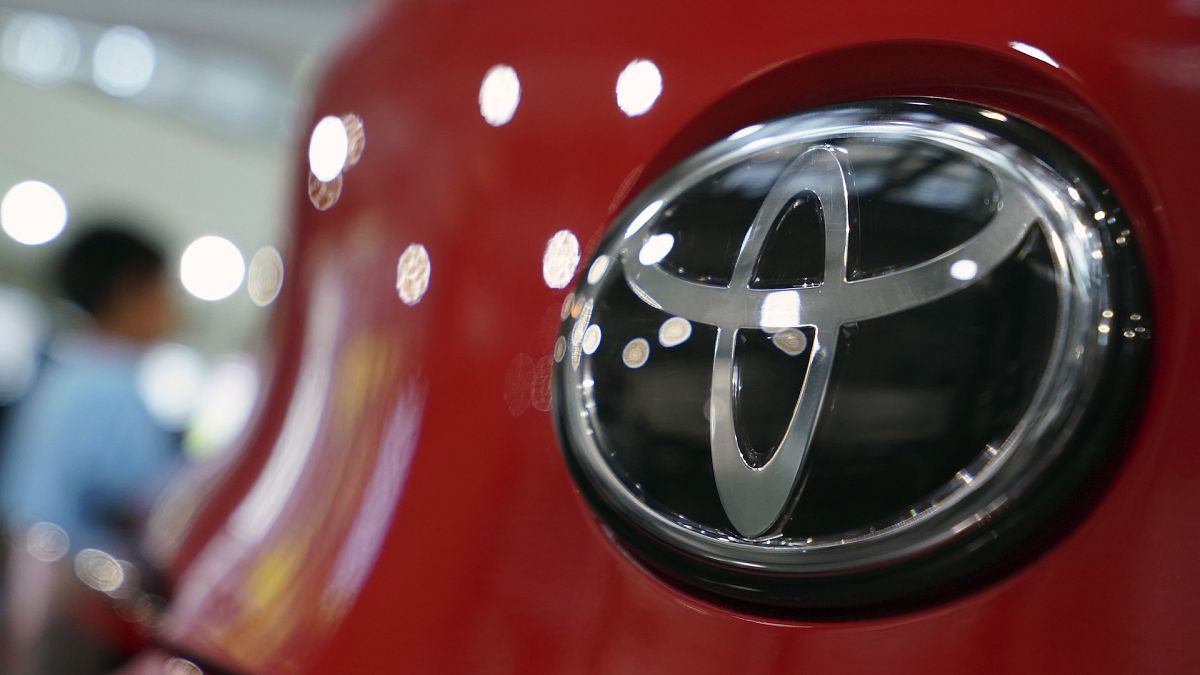Toyota’s push also comes as worries grow around Asia about a potential trade war brewing after President Donald Trump imposed tariffs on Chinese goods and China retaliated with tariffs to take effect next week.
Toyota is developing and making electric vehicles and EV batteries in China, under a new partnership with the Shanghai government, the Japanese car maker has announced.
Toyota Motor Corp also revealed it will start producing batteries for EVs, hybrids and plug-ins at a new $14bn (€13.5bn) facility in North Carolina, with shipping starting for North American models in April.
The moves highlight Toyota’s aggressive push in electric cars, a sector where some critics have said it’s fallen behind rivals such as Tesla and BYD at a time when the Chinese EV market is booming and the world’s concerns about sustainability are increasingly crucial.
Toyota is setting up a company in Jinshan district in southwest Shanghai for that effort, with production of the new Lexus EVs starting in 2027.
Initial production capacity there totals 100,000 vehicles a year, which will create about 1,000 jobs, the world’s top car maker said. The battery plant in the US will create some 5,000 jobs, according to Toyota.
Trump uncertainty and tariffs looming
Toyota’s push also comes as worries grow around Asia about a potential trade war brewing after President Donald Trump imposed tariffs on Chinese goods and China retaliated with tariffs to take effect next week.
“We have always tried to be a company that will be loved wherever we do our business. That has never waivered”, chief financial officer Yoichi Miyazaki told reporters, without specifically addressing the tariffs.
Toyota also reported on Wednesday that its fiscal third quarter profit jumped 61% from the previous fiscal year to 2.19 trillion yen (€13.8bn), on 12.4 trillion yen (€78bn) sales, up 3% on the year.
Toyota officials said sales were recovering from the drop earlier this fiscal year after some production was suspended over a certification scandal in Japan.
Toyota last year acknowledged wide-ranging fraudulent testing, including the use of inadequate or outdated data in crash tests, incorrect testing of airbag inflation and engine power checks. The wrongdoing did not affect the safety of the vehicles, and only affected production in Japan.
Forecasts revised upwards
Toyota revised its profit forecast for the full fiscal year through March 2025 to 4.5 trillion yen (€28bn) from the previous projection for a 3.6 trillion yen (€23.1bn) profit, thanks to the positive effect of the foreign exchange rate and cost reduction efforts. The new projection still falls short of what Toyota racked up the previous fiscal year at 4.9 trillion yen.
The new company in China is part of Toyota’s drive to meet the high demand for EVs in China, according to Toyota. Toyota already has China FAW Group Co. and Guangzhou Automobile Group Co. as its longtime partners in China, and those will continue unchanged, he said.
Toyota said it hopes to contribute to the Chinese government’s goal of achieving carbon neutrality by 2060.
“Local Chinese members will take the lead in planning and developing BEVs that match the unique needs of Chinese customers. Our goal is to become a company that is more loved and supported by the people of China”, said Miyazaki.

